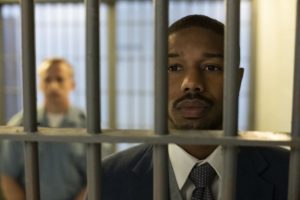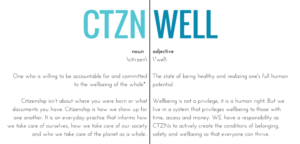Constellation of Chance & Choice
January 9, 2020“My life … runs back through time and space to the very beginnings of the world and to its utmost limits. In my being I sum up the earthly inheritance and the state of the world at this moment.”
Maria Popova: Perhaps our most acute awareness of the lacuna between the one life we do have and all the lives we could have had comes in the grips of our fear of missing out — those sudden and disorienting illuminations in which we recognize that parallel possibilities exists alongside our present choices. “Our lived lives might become a protracted mourning for, or an endless tantrum about, the lives we were unable to live,” wrote the psychoanalyst Adam Phillips in his elegant case for the value of our unlived lives. “But the exemptions we suffer, whether forced or chosen, make us who we are.”
The garland of those exemptions strews our sense of self — our constellating experience of personal identity which, as the poet and philosopher John O’Donohue so incisively observed,”is not merely an empirical process of appropriating or digesting blocks of life.”
No one has captured that ultimate existential awareness more beautifully, nor with greater nuance, than the trailblazing French existentialist philosopher and feminist Simone de Beauvoir (January 9, 1908–April 14, 1986)
The penetration of that particular ovum by that particular spermatozoon, with its implications of the meeting of my parents and before that of their birth and the births of all their forebears, had not one chance in hundreds of millions of coming about. And it was chance, a chance quite unpredictable in the present state of science, that caused me to be born a woman. From that point on, it seems to me that a thousand different futures might have stemmed from every single movement of my past: I might have fallen ill and broken off my studies; I might not have met Sartre; anything at all might have happened.
Tossed into the world, I have been subjected to its laws and its contingencies, ruled by wills other than my own, by circumstance and by history: it is therefore reasonable for me to feel that I am myself contingent. What staggers me is that at the same time I am not contingent.
If I had not been born no question would have arisen: I have to take the fact that I do exist as my starting point.
To be sure, the future of the woman I have been may turn me into someone other than myself. But in that case it would be this other woman who would be asking herself who she was. For the person who says “Here am I” there is no other coexisting possibility. Yet this necessary coincidence of the subject and his history is not enough to do away with my perplexity. My life: it is both intimately known and remote; it defines me and yet I stand outside it.
Chance … has a distinct meaning for me. I do not know where I might have been led by the paths that, as I look back, I think I might have taken but that in fact I did not take. What is certain is that I am satisfied with my fate and that I should not want it changed in any way at all. So I look upon these factors that helped me to fulfill it as so many fortunate strokes of chance.
Simone de Beauvoir on How Chance and Choice Converge to Make Us Who We Are
We the people…want peace.
‘While the US isn’t planning “military action”, they will impose more sanctions on Iran, which, in reality, IS an act of war that affects the most vulnerable, denying them access to food and medicine. This is far from over.’
avaaz.org
Let’s make the 2020s the decade we took it all back.
There’s something more powerful than laws and policies: us.
The culture, values and beliefs of people.
And while we were trying to change policies, anger and fear and Facebook and the Kremlin have been changing people.
We can start by following 4 principles that have been strongly supported by Avaaz members.
PRINCIPLES FOR 2020
1. Untrigger
“Triggers” quickly move us to anger and fear – they steal our best and offer our worst. We all trigger all the time, but if we own our triggers as our own: “that’s my insecurity about x” then we can stop blaming others, stop being trolly, and start acting from love and wisdom.
2. Listen for wisdom
When we’re not triggered, we can listen deeply to the perspectives of others, as well as to ourselves – to the emotions of our heart, the reason of our heads, and the intuition of our gut – and we can listen for that quiet voice within that harmonizes all of these things, and suggests wisdom to us.
3. Be kind AND strong
Kindness without strength can be cowardice. And strength without kindness can be brutal. We need both love and strength, ‘Yin’ and ‘Yang’, to successfully protect the things we hold precious and in common.
4. Stop the Gossip, seek the truth
Fake news, half-truths, smears, and disinformation motivated by emotion and agenda bring out the worst in all of us. People are fundamentally decent, but we are quick to embrace simple demonizations that justify the worst we do to each other. Let’s strive to see the human not the villain, and understand the often complex truth.
High Country News
Can new bus lines chart a course to better travel options in the West?
A European bus company is expanding options for regional travel. High-speed rail could be next.
FlixBus, a European company founded in Germany in 2013, first launched routes in California, Nevada and Arizona in 2018 and has since expanded to Utah, Washington, a sliver of Idaho and Oregon. They’ve entered an increasingly popular industry for city-to-city transport, with competitors like BoltBus, Megabus and the upscale Cabin bus, an overnight sleeper connecting San Francisco and Los Angeles. All of these brands have emerged in the last decade as alternatives to Greyhound, the only nationwide bus service.
To differentiate itself in a growing field, FlixBus targets passengers looking for perks like reliable Wi-Fi and charging outlets. The company also tries to meet younger riders where they are, like on the campus of Central Washington University in Ellensburg, Washington. On a chilly December day with low clouds and foggy breath lingering in the air, two CWU students caught the bus heading to Seattle. “It’s way easier to access a bus that comes to your campus,” said Leilani Salu, who was riding FlixBus for the first time. “And even when you get dropped off in places like Seattle, it’s convenient because it’s right next to the light rail.” A driver who worked the Thanksgiving holiday weekend said the buses were packed with students.
In general, Millennials and the now coming-of-age members of Generation Z are more attracted to lifestyles that don’t rely on cars. A 2014 study by the Public Interest Research Group, for example, found that Millennials are less likely to drive and more likely to either use public transit or bike than generations before them were as young adults.
As concerns grow over the environmental impacts of travel, policy solutions could favor bus companies. While figures shift based on capacity, when buses are full they are the most carbon-efficient form of long distance travel in the United States, according to Joseph Schwieterman, the director of DePaul University’s Chaddick Institute for Metropolitan Development and an expert on regional transportation. And that could become a big deal as Western states develop plans to rein in and possibly tax carbon emissions. “The single biggest policy to jump-start bus travel would be a fee on carbon use,” he said.
Narcissism and excess.
“They were careless people, Tom and Daisy- they smashed up things and creatures and then retreated back into their money or their vast carelessness or whatever it was that kept them together, and let other people clean up the mess they had made.”
― The Great Gatsby






